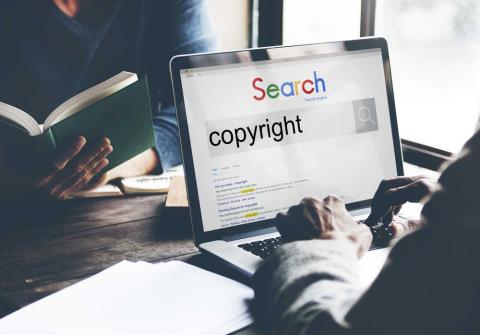Who Owns Your Website and Content?
If you’ve hired a designer to create a website, or regularly use freelancers to create content for your site, you may wonder who exactly owns the content that’s been created. This question may come to light any time you work with an independent contractor.
Two documents you should become familiar with to ensure the content you share online belongs to you and/or your company are Work for Hire Agreements and Copyright Assignment Agreements. But first, let’s explore what happens when no agreement is in place.
The Creator is the Owner
Generally, the creators of content – visual and written – own all of the copyright rights. If the content is paid for, the individual or company who pays for it has the right to use it as it is intended when written or created. Because this is considered “nonexclusive,” they cannot prevent others from using it as well. This means that if nothing is in place, the contractor could use the content elsewhere.
This is why signed agreements are critical.
Work for Hire Agreements
As long as a Work for Hire Agreement is in place, signed by both parties and in the proper scope, the hiring party owns all copyright rights. The scope or categories covered by Works for Hire Agreements are:
- Contributions to collective works (like an anthology) or compilations.
- Translations.
- Any part of an audio visual work.
- Supplementary works (like forewords, illustrations, maps, notes).
- Tests and answers.
- Instructional texts.
In most cases, websites are considered collective works. Because of this, a Works for Hire Agreement protects the rights of the hiring party as long as it is signed before any work has begun.
Copyright Assignment Agreements
When a content creator signs a Copyright Assignment Agreement, they’re transferring the rights that he or she has in the content that has been created to another party. This takes away all intellectual property rights from the creator and transfers it to the assigned party. In some cases, this is called an “all rights transfer.”
Providing the content being transferred is not patented, the Agreement can be simple and should contain:
- The names and addresses of both parties, and
- A description of which rights will be transferred (titles, content, domains, etc.).
This agreement can be signed prior to the creation of the content or after it is complete.
As a business owner, it’s important that the content you broadcast and the site you use to do so belong to you. This prevents trouble in the future. If you have questions about Work for Hire or Copyright Assignment Agreements, speaking with an experienced business law attorney, like Michael Hynum of Hynum Law, may be beneficial.
Call today to set up a consultation; we look forward to working with you.

